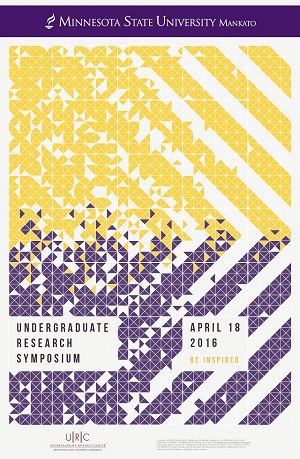So You Think You Can Detect Deception?
Location
CSU Ballroom
Start Date
18-4-2016 2:00 PM
End Date
18-4-2016 3:30 PM
Student's Major
Psychology
Student's College
Social and Behavioral Sciences
Mentor's Name
Emily Stark
Mentor's Department
Psychology
Mentor's College
Social and Behavioral Sciences
Description
Past research has found that, generally, we are not very accurate at detecting deception (Vrij, Fisher, Mann, & Leal, 2010). The current study examines in detail cues people use when attempting to detect deception. By identifying what processes participants are using to analyze the true or false videos, we can find the relationship between participants’ use of behavioral and verbal cues, and accuracy of deception detection. The current study included 160 participants who viewed 8 videos (4 true and 4 false), rated the speaker on several scales, and determined if they thought the story was true. Participants also listed cues they used to make their decision. Preliminary analyses have found that participants were generally unable to distinguish between truths and lies, and we are currently analyzing their cue reports to determine whether relying on useful cues (such as speech-related cues) will lead to better accuracy than relying on non-useful cues (such as fidgeting or eye contact). This study adds to our knowledge of accurate and inaccurate deception cues and people’s overall ability to detect deception.
So You Think You Can Detect Deception?
CSU Ballroom
Past research has found that, generally, we are not very accurate at detecting deception (Vrij, Fisher, Mann, & Leal, 2010). The current study examines in detail cues people use when attempting to detect deception. By identifying what processes participants are using to analyze the true or false videos, we can find the relationship between participants’ use of behavioral and verbal cues, and accuracy of deception detection. The current study included 160 participants who viewed 8 videos (4 true and 4 false), rated the speaker on several scales, and determined if they thought the story was true. Participants also listed cues they used to make their decision. Preliminary analyses have found that participants were generally unable to distinguish between truths and lies, and we are currently analyzing their cue reports to determine whether relying on useful cues (such as speech-related cues) will lead to better accuracy than relying on non-useful cues (such as fidgeting or eye contact). This study adds to our knowledge of accurate and inaccurate deception cues and people’s overall ability to detect deception.
Recommended Citation
Lyksett, Shaylyn; Kaitlyn Hunstad; and Brianna Fitzgibbons. "So You Think You Can Detect Deception?." Undergraduate Research Symposium, Mankato, MN, April 18, 2016.
https://cornerstone.lib.mnsu.edu/urs/2016/poster-session-B/32




